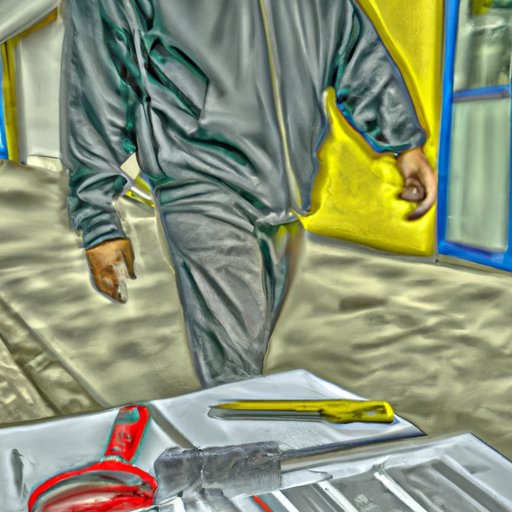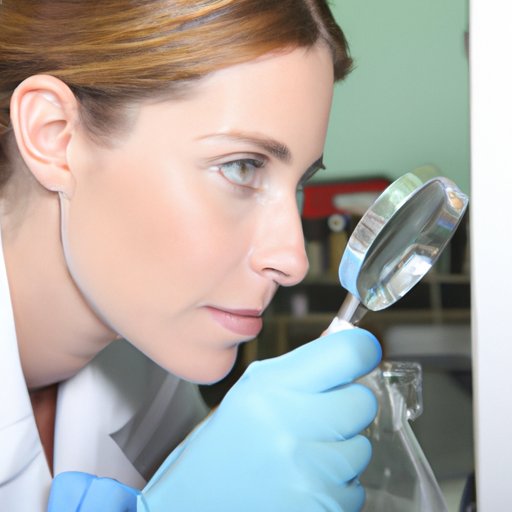Introduction
Forensic science technicians are responsible for collecting and analyzing evidence from crime scenes. They play an integral role in criminal investigations by using their expertise in laboratory analysis to help law enforcement officers determine who committed a crime and how it was done. By applying scientific methods and principles to their work, forensic science technicians are able to provide valuable information that can be used to build a case against a suspect.

Definition of Forensic Science Technician
According to the U.S. Bureau of Labor Statistics, a forensic science technician is someone who “performs technical examinations and analyses of physical evidence related to criminal investigations.” This includes gathering and analyzing evidence at a crime scene, as well as conducting laboratory tests on evidence collected from a crime scene. As part of their job duties, they may also analyze fingerprints, blood samples, and other types of biological evidence.
Overview of the Role of a Forensic Science Technician
Forensic science technicians work closely with law enforcement agencies to investigate crimes. They are responsible for documenting and preserving evidence, conducting laboratory tests, and analyzing data. They must have excellent observation skills and be able to accurately record their findings. In addition, they must be able to follow directions and work independently, as well as collaboratively with members of the team.

Profile of a Forensic Science Technician
Education and Training Requirements
Most employers prefer to hire forensic science technicians who have at least a bachelor’s degree in a natural science field, such as biology, chemistry, or physics. Some employers may require a master’s degree in a related field. In addition to formal education, many employers require applicants to have experience in a laboratory setting. Many employers provide on-the-job training for new hires.
Typical Job Duties
Forensic science technicians typically perform a variety of tasks, including collecting evidence at crime scenes, processing evidence in laboratories, examining evidence under microscopes, photographing evidence, preparing reports, testifying in court, and providing expert opinions on the evidence collected. They must be knowledgeable about the latest forensic technologies and be able to use them to analyze evidence. They must also be familiar with proper evidence handling procedures.
Career Outlook
Employment Opportunities
The demand for forensic science technicians is expected to continue to grow over the next decade, due to increased interest in crime scene investigation and the need for more sophisticated testing and analysis techniques. According to the Bureau of Labor Statistics, employment of forensic science technicians is projected to grow 14% from 2019 to 2029, much faster than the average for all occupations.
Salary Range
The median annual wage for forensic science technicians in May 2019 was $59,150, according to the Bureau of Labor Statistics. The lowest 10% earned less than $37,280, and the highest 10% earned more than $97,350. Salaries vary depending on the employer, level of experience, and type of position.
Conclusion
Summary of the Role of a Forensic Science Technician
Forensic science technicians play an important role in criminal investigations by collecting and analyzing evidence from crime scenes. They must have a thorough knowledge of laboratory analysis techniques and be familiar with proper evidence handling procedures. They must also be able to follow directions and work both independently and collaboratively.
Benefits of Being a Forensic Science Technician
Being a forensic science technician can be a rewarding and challenging career. It offers the opportunity to use one’s scientific knowledge and skills to help solve crimes and bring justice to victims. It also provides job security and stability, as well as the potential for advancement. In addition, forensic science technicians enjoy the satisfaction of knowing that their work makes a difference in the lives of others.
(Note: Is this article not meeting your expectations? Do you have knowledge or insights to share? Unlock new opportunities and expand your reach by joining our authors team. Click Registration to join us and share your expertise with our readers.)
